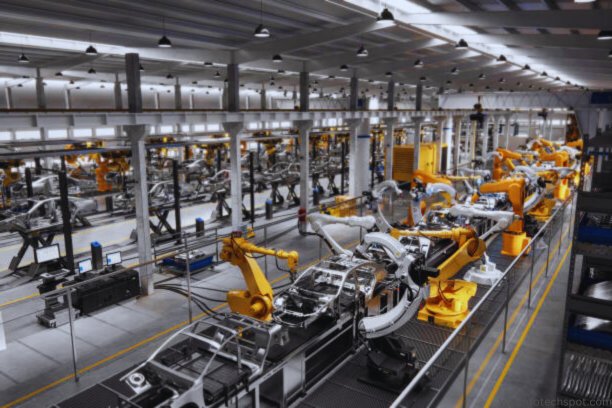Automation Technology Benefits and Challenges
With advancements in artificial intelligence (AI), robotics, and machine learning, automation is revolutionizing traditional processes and unlocking new possibilities.

Understanding Automation Technology:
Automation technology has become a powerful force that is reshaping industries across the globe. With advancements in artificial intelligence (AI), robotics, and machine learning, automation is revolutionizing traditional processes and unlocking new possibilities. From manufacturing and healthcare to transportation and finance, the impact of automation is far-reaching and transformative.
Enhancing Efficiency and Productivity Through Automation
In today's fast-paced world, efficiency and productivity are essential for businesses to thrive. It offers a solution by streamlining repetitive tasks and augmenting human capabilities. By automating mundane and time-consuming activities, organizations can optimize their operations, reduce errors, and enhance overall productivity.
Moreover, automation enables businesses to scale their operations without a proportional increase in resources. With the ability to handle large volumes of data and perform complex calculations in real time, machines equipped with automation technology significantly accelerate processes that once relied solely on human effort. This allows employees to focus on higher-value tasks, fostering creativity, innovation, and strategic thinking within organizations.
HTransforming Industries Through Intelligent Automation
Automation is not limited to specific sectors but has the potential to transform industries across the board. In manufacturing, robotic automation has revolutionized assembly lines, enabling faster production, improved quality control, and increased safety. Autonomous vehicles are reshaping the transportation sector, with the promise of safer roads, reduced traffic congestion, and optimized logistics.
In the healthcare industry, automation technology is enhancing patient care and medical research. From robotic-assisted surgeries to AI-powered diagnostics, automation is enabling more accurate diagnoses, personalized treatments, and improved patient outcomes. Additionally, the automation of administrative tasks and electronic health records management improves operational efficiency and allows healthcare professionals to spend more time with patients.
The finance sector is also experiencing significant transformations through automation. Robo-advisors and algorithmic trading systems are revolutionizing investment management, offering personalized financial advice and executing trades at lightning-fast speeds. Automation streamlines transaction processing, risk assessment, and compliance procedures, resulting in cost savings and improved customer experiences.
Addressing the Challenges and Embracing the Potential
While automation technology presents numerous opportunities, it also brings challenges that need to be addressed. The potential displacement of jobs due to automation is a concern for many. However, history has shown that as technology advances, new jobs are created, requiring different skill sets. Reskilling and upskilling the workforce will be crucial to ensure a smooth transition and harness the full potential of automation.
Moreover, ethical considerations surrounding automation, such as data privacy, algorithmic bias, and the impact on social equity, need to be carefully addressed. Transparent and accountable practices must be in place to build trust and ensure responsible use of it.
Conclusion
Automation technology is revolutionizing industries, enhancing efficiency, and transforming the way we work. It empowers organizations to optimize processes, improve productivity, and drive innovation. While challenges exist, embracing automation and navigating its impact with foresight and responsible practices will unlock a future where humans and machines work hand in hand, creating a more prosperous and sustainable world.











